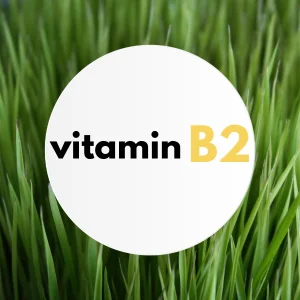Vitamin B2

Vitamin B2, also known as lactoflavin, riboflavin, or ovoflavin, is a crystalline compound with a yellow-orange color, soluble in water and alcohols, and sensitive to oxidizing agents.
Like other B vitamins, it is essential for energy production in the body, playing a crucial role in the breakdown of fats, carbohydrates, and proteins, as well as in blood formation, respiration, antibody production, growth, and reproduction. It is a component of many important coenzymes necessary for enzymatic processes in the body. Additionally, it is necessary for healthy skin, hair, nails, and thyroid regulation. It is essential for growth.
During the 1920s, it was discovered that an extract obtained from rice husks, which prevented the development of beriberi, consisted of multiple components. The heat-sensitive component was named B1, and the heat-stable component was named B2. Later, it was determined that this was also a mixture of several compounds.
Vitamin B2 was isolated in pure form by Richard Kuhn, Pal Giorgi, and Julius Vagner-Jauregg in 1933 at the University of Heidelberg from egg white. 1934. Its structure was also elucidated in 1934. Its synthesis was independently developed in 1935 by the research team of Kuhn and Paul Karrer.
It decomposes under direct sunlight. The human body is unable to store vitamin B2, so excess is excreted in the urine.
Its deficiency often causes symptoms such as eye diseases, in some cases cataracts, burning in the eyes, photosensitivity, blindness, intestinal disorders, muscle weakness, growth retardation, and nervous system problems. In its absence, swelling of the tongue and lips, fatigue, and a decrease in hemoglobin levels may also occur. Deficiency symptoms can be eliminated with 10-20 mg of riboflavin per day.
Due to its yellowish, orange-yellow color, it is often used as a yellow dye in the food industry (E101), primarily in the preparation of baby food, cereals, sauces, cheeses, and fruit drinks.
Sources of Vitamins
The main sources of vitamin B2 are milk and dairy products, eggs, meat, cereals, legumes, liver, and yeast.
Recommended Daily Dose
The daily requirement for normal adults is 1.2 to 1.7 mg. Slightly higher doses are recommended during pregnancy and breastfeeding.










